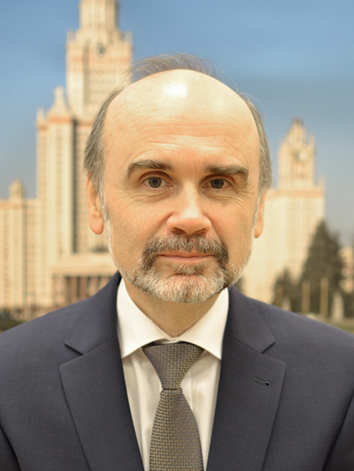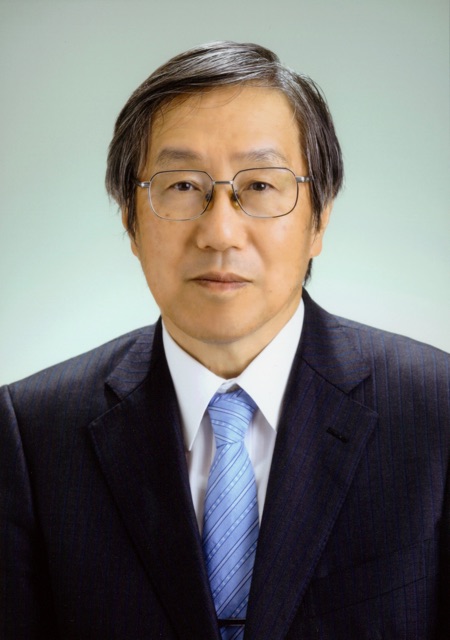Toward Future HPC Technologies
Tohoku University, Japan Agency for Marine-Earth Science and Technology (JAMSTEC), High Performance Computing Center Stuttgart (HLRS), and NEC Corporation are pleased to announce that the 23rd Workshop on Sustained Simulation Performance (WSSP) will be held on March 16th and 17th, 2016 in Sendai, Miyagi, Japan. The purpose of the workshop is to discuss future supercomputers, through the latest research efforts in large-scale computing with high performance and high efficiency.
We are looking forward to seeing you in the workshop.
In the workshop, two keynote talks are scheduled.
Keynote Talk I
Parallel Algorithms: Theory, Practice and Education
Prof. Vladimir Voevodin
(Moscow State Univ.)
Abstract: The computing world is changing and all devices from mobile phones and personal computers to high-performance supercomputers are becoming parallel. At the same time, the efficient usage of all the opportunities offered by modern computing systems represents a global challenge. Using full potential of parallel computing systems and distributed computing resources requires new knowledge, skills and abilities, where one of the main roles belongs to understanding of key properties of parallel algorithms. What are these properties? What should be discovered and expressed explicitly in existing algorithms when a new parallel architecture appears? How to ensure efficient implementation of an algorithm on a particular parallel computing platform? All these as well as many other issues will be addressed in the talk.
The idea that we use in educational practice at the university is to split a description of an algorithm into two parts. This helps us to explain what a good parallel algorithm is and what is important for its efficient implementation. The first part describes algorithms and their properties. The second part is dedicated to describing particular aspects of their implementation on various computing platforms. The first part draws attention to the key theoretical properties, and the second part puts emphasis on the aspects fundamentally important on practice. This division is made intentionally to highlight the machine-independent properties of algorithms which determine their potential and the quality of their implementations on parallel computing systems, and to describe them separately from a number of issues related to the subsequent stages of programming and executing the resulting programs. In addition to the classical algorithm properties such as serial complexity, we have to explain concepts such as parallel complexity, parallel structure, determinacy, data locality, performance and scalability estimates, communication profiles for specific implementations, and many others aspects.
This approach was successfully implemented as an open encyclopedia AlgoWiki, which is available for the computational community at www.AlgoWiki-Project.org.

Vladimir Voevodin is Deputy Director of the
Research Computing Center at Lomonosov Moscow State
University. He is Head of the Department “Supercomputers and
Quantum Informatics” at the Computational Mathematics and
Cybernetics Faculty of MSU, professor, corresponding member of
Russian academy of sciences.
Vl. Voevodin specializes in
parallel computing, supercomputing, extreme computing, program
tuning and optimization, fine structure of algorithms and
programs, parallel programming technologies, scalability and
efficiency of supercomputers and applications, supercomputing
co-design technologies, software tools for parallel computers,
and supercomputing education. His research, experience and
knowledge became a basis for the supercomputing center of Moscow
State University, which was founded in 1999 and is currently the
largest supercomputing center in Russia. He has contributed to
the design and implementation of the following tools, software
packages, systems and online resources: V- Ray, X-Com, AGORA,
Parallel.ru, hpc-education.ru, hpc-russia.ru, LINEAL, Sigma,
Top50, OctoShell, Octotron, AlgoWiki. He has published 90
scientific papers with 4 books among them. Vl.Voevodin is one of
the founders of Supercomputing Consortium of Russian
Universities established in 2008, which currently comprises more
than 60 members. He is a leader of the major national activities
on Supercomputing Education in Russia and General Chair of the
two largest Russian supercomputing conferences.
Keynote Talk II
Simulation of Time Sequential Deformation Behaviors of Diseased Blood vessel Wall under Pulsatile Pressure Conditions based on CFD
Prof. Toshimitsu Yokobori
(Tohoku Univ.)
Abstract: Numerical analyses were conducted to detect the time sequential deformation behaviors of diseased blood vessel wall with aneurysm under pulsatile pressure conditions using designed original program software based on computer fluid dynamics. To detect detailed these behaviors, it is necessary to conduct an analysis with high accuracy and long CPU time. We designed original algorithm to detect detailed behaviors of diseased blood vessel wall with aneurysm, however it takes much CPU time. Using super computer, CPU time of the numerical analysis was also successfully shortened and it will enable us to apply this analysis to actual blood vessel structure.

Toshimitsu Yokobori received Doctor of Engineering from Graduate School of Engineering from Tohoku University in 1973. He has served Department of Mechanical Engineering at Tohoku University as a research associate and an associate professor from 1978 and 1979, respectively. He is currently a professor of Graduate School of Engineering at Tohoku University.
He is also active in international organizations and journals. He has served as Section Chairman of ASTM.F4.04.10, which is the Section on Mechanical Test Method on Cardio Vascular Implant and Materials, from 1987 to 1993. He also takes roles as Secretary General of International Congress on Fracture (ICF) from 2001, Executive Editor of an International Journal of Strength, Fracture and Complexity from 2011, and Editor in Chief of an International Journal of Biomedical Materials and Engineering from 2011. In Japan, he is Vice President of Japanese Society for Strength and Fracture of Materials from 2011, and Chairman of JSPS 129 Committee from 2011.
He was awarded Honorary Fellow from ICF in 2013, and Achievement Award from Materials and Mechanics Division of Japanese Society of Mechanical Engineers in 2014.
Attractive talks by international HPC researchers are also planned.
The details of the workshop program are shown in here.
wssp-tohoku [at] sc.cc.tohoku.ac.jp